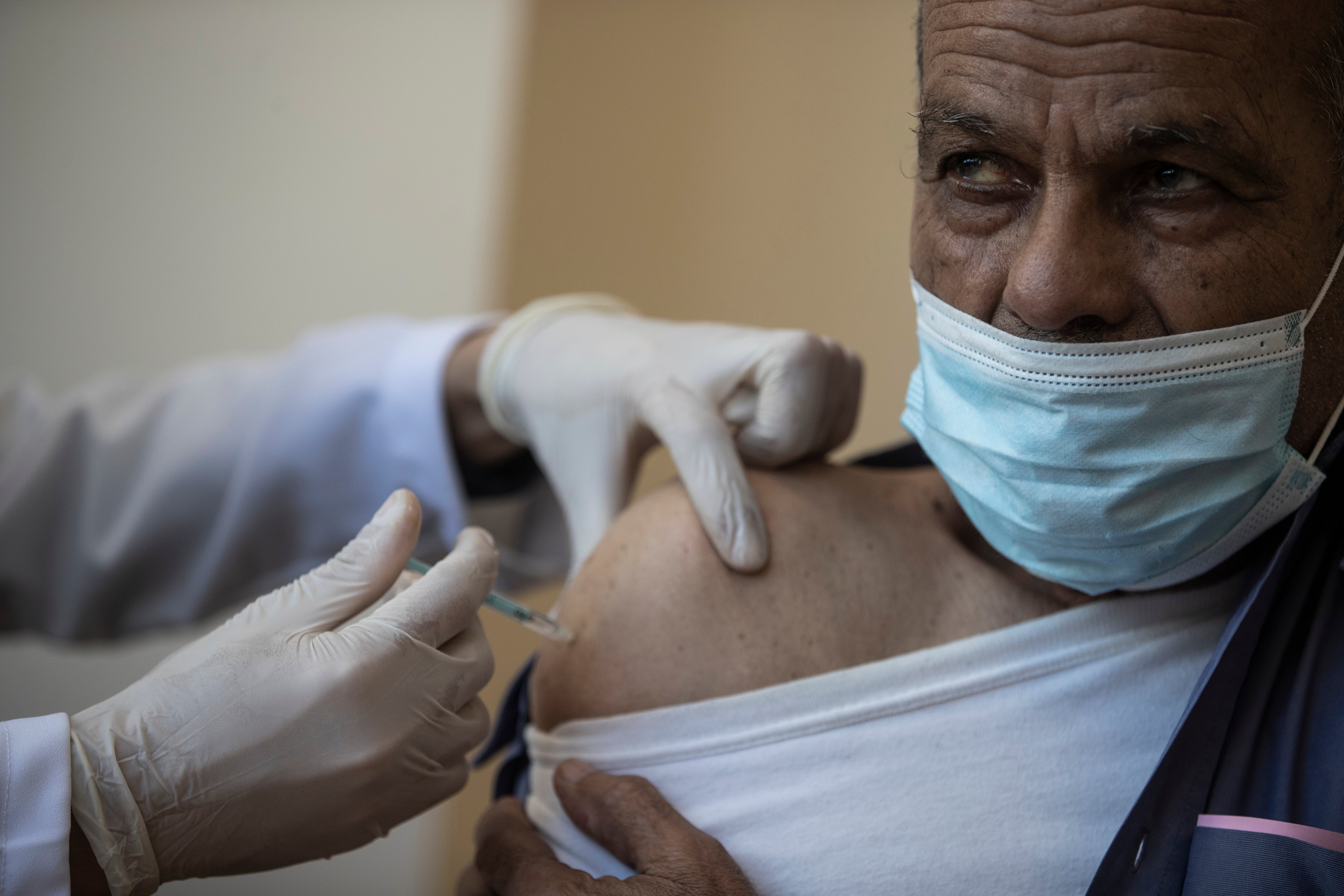Palestinians get 60,000 vaccine doses through WHO program
The Palestinian Authority says it will receive around 60,000 coronavirus vaccine doses over the next 48 hours

Your support helps us to tell the story
From reproductive rights to climate change to Big Tech, The Independent is on the ground when the story is developing. Whether it's investigating the financials of Elon Musk's pro-Trump PAC or producing our latest documentary, 'The A Word', which shines a light on the American women fighting for reproductive rights, we know how important it is to parse out the facts from the messaging.
At such a critical moment in US history, we need reporters on the ground. Your donation allows us to keep sending journalists to speak to both sides of the story.
The Independent is trusted by Americans across the entire political spectrum. And unlike many other quality news outlets, we choose not to lock Americans out of our reporting and analysis with paywalls. We believe quality journalism should be available to everyone, paid for by those who can afford it.
Your support makes all the difference.
The Palestinian Authority said Wednesday it will receive around 60,000 coronavirus vaccine doses over the next 48 hours, the first shipment provided by a World Health Organization partnership aimed at helping poor countries.
That's only enough doses to vaccinate 31,000 people out of a population of nearly 5 million Palestinians in the Israeli-occupied West Bank and Gaza Israel, which has faced criticism for not sharing more of its supplies with the Palestinians, has already vaccinated 5 million people— more than half of its population — and has largely reopened its economy.
Palestinian Health Ministry spokesman Kamal al-Shakhra said authorities would receive 38,000 doses of the Pfizer vaccine and 24,000 doses of the AstraZeneca vaccine. The AstraZeneca vaccines will be kept in storage until the WHO reviews recent safety concerns.
An Israeli security official confirmed the shipment, which arrived in Israel's Ben Gurion International Airport, and said about a third of the vaccines would be sent to Gaza on Wednesday. The official spoke on condition of anonymity in line with regulations.
These are the first doses to arrive through the WHO's COVAX initiative, a global humanitarian partnership that has been slow to get off the ground, facing shortages of cash and supplies as rich countries have galloped ahead with their vaccination campaigns.
Those global inequities have been on vivid display in Israel, which boasts one of the world's fastest vaccination campaigns, and the Palestinian territories, which have yet to receive enough vaccines to cover medical workers, let alone the elderly or those with chronic illness.
Until now, the PA had received 2,000 doses from Israel and acquired another 10,000 doses of the Russian-made Sputnik V vaccine. Authorities in the Gaza Strip, which is ruled by the Islamic militant group Hamas, have received 60,000 doses in shipments organized by Mohammed Dahlan, a political rival of Palestinian President Mahmoud Abbas who is based in the United Arab Emirates.
The PA has been criticized for using some of its limited supply to vaccinate senior officials and their security details, as well as the Palestinian soccer team. The Health Ministry defended its policies, saying more than 90% of its doses were given to front-line medics.
Rights groups have said that Israel, as an occupying power, is responsible for vaccinating the Palestinians. Israel rejects those claims and says its own citizens are the priority. Under interim peace agreements, the PA is responsible for health care in the territories it administers but both sides are supposed to cooperate in combatting epidemics.
The PA says it is securing its own supplies through COVAX and agreements with drug makers.
Israel recently began vaccinating the estimated 100,000 Palestinians from the West Bank who work in Israel and Jewish settlements. Israel captured the West Bank in the 1967 war, and the Palestinians want it to form the main part of their future state.
Health experts have warned that failing to vaccinate the Palestinians could endanger Israel's own efforts to combat the pandemic, as the two populations live in close proximity.
___
Associated Press reporters Jelal Hassan in Ramallah, West Bank, and Fares Akram in Gaza City, Gaza Strip, contributed.